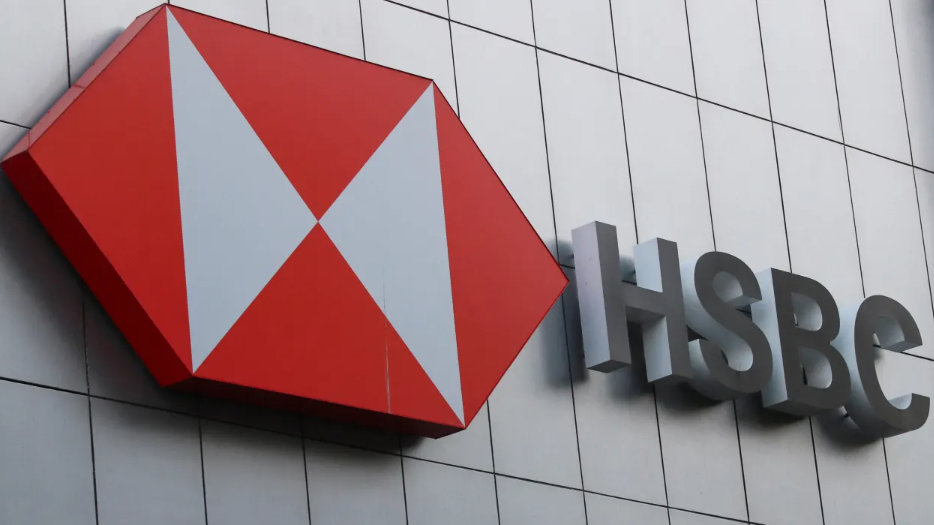HSBC Unveils $3 Billion Share Repurchase As Q2 Earnings Slump 29%

In a shock for shareholders, Europe's biggest bank, HSBC, revealed a $3 billion share buyback after posting a sharp 29% year-on-year drop in second-quarter earnings. The bank's pre-tax profit for the three months to June 2025 was $6.3 billion, lower than expected at $6.99 billion. Revenue fell short of forecasts too, reaching $16.5 billion against an expected $16.67 billion.
The fall in performance was mainly due to impairment charges related to a Chinese bank and lower income from divested businesses earlier this year. Operating expenses jumped by 10%, being driven by restructuring costs and higher spending on technology.
Strategic Restructuring and Global Shifts
Group CEO Georges Elhedery also pointed to larger economic issues, stating that global tariffs and fiscal exposures are introducing uncertainty and volatility into markets. "Trade disruption is transforming the economic landscape before tariffs fully impact," Elhedery cautioned, and said inflation and interest rate expectations are becoming increasingly difficult to forecast.
In spite of this, HSBC maintains that it is "well-positioned" to ride out the changing global landscape. The bank did, however, warn its return on tangible equity (RoTE) may drop below its mid-teen goals in coming years because of pressures from macroeconomics.
Wealth Division Bright Spot, Lending Demand Weak
While HSBC reported soft lending demand for the rest of 2025, it is hopeful for its wealth management business. The bank reiterated its double-digit average annual fee and other income from its wealth business's medium-term growth expectation. This change comes from a strategic shift towards more stable, recurring income streams in times of global financial uncertainty.
Ongoing Restructuring and Job Cuts
As part of its overall restructuring plan, HSBC is reducing its investment banking presence in Europe and America. HSBC has recently announced that it will cut jobs in its equities business in Germany, Bloomberg reported recently. This move comes after an initial announcement to close down its M&A and portions of its equities business outside Asia and the Middle East.
The restructuring follows Elhedery's plan to streamline HSBC's operations through the establishment of distinct Eastern and Western market segments—an initiative that is set to cut costs by some $300 million this year.
Leadership Transition Looms
Joining its list of issues, HSBC is also undergoing a leadership change, with Group Chairman Mark Tucker slated to leave in September. Seeking a worthy replacement has already begun. Market experts such as Morningstar's Michael Makdad opine that the new leadership should continue to align HSBC's cost-cutting strategy while refraining from making radical changes in its business model.
Market Reaction
HSBC's Hong Kong-listed stock fell 2.71% after the results announcement, as investors were worried about profitability and the outlook for the world economy. The $3 billion share buyback, though, indicates that the bank is optimistic about its long-term positioning, hinting at a commitment to capital return to investors in the face of near-term headwinds.
FAQs
Why was HSBC's profit down 29% in Q2 2025?
The decline in profit was primarily attributable to impairment charges related to a Chinese bank and decreased revenue from businesses HSBC had disposed of earlier this year. Higher restructuring and technology investment expenses were also a factor.
Why is HSBC undertaking its $3 billion share buyback?
Although profits are falling, HSBC is undertaking the buyback to restore value to shareholders and demonstrate long-term faith in the company. Buybacks also have the effect of increasing earnings per share by lowering the number of outstanding shares.
How is HSBC reconfiguring its operations?
HSBC is streamlining its structure by forming "Eastern" and "Western" markets and reducing investment banking outside Asia and the Middle East. This involves closing portions of its M&A and equities units and cutting staff in European offices.
Will HSBC's profitability increase in the near term?
The bank cautioned that its return on tangible equity could dip below mid-teens levels because of macroeconomic pressures. Strong growth in its wealth business is expected to cushion some of the pressure, though.
What are HSBC's greatest risks currently?
The main risks are global economic uncertainty, inflation volatility, increasing tariffs, slumping lending demand, and the imminent leadership transition with Chairman Mark Tucker leaving in September.
